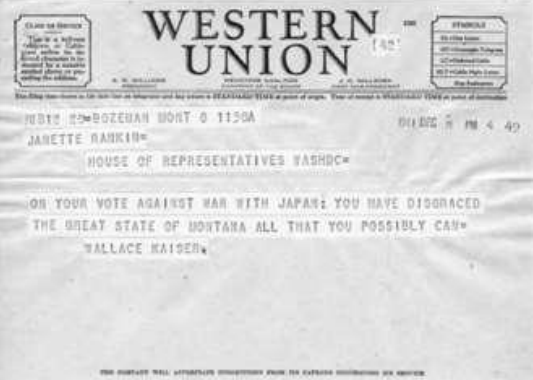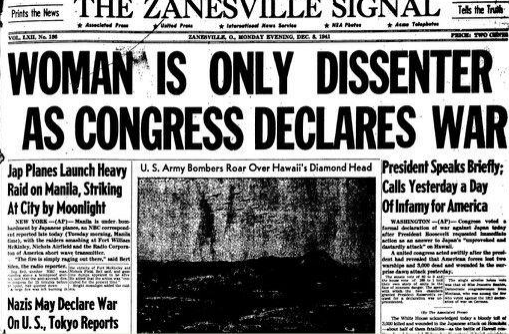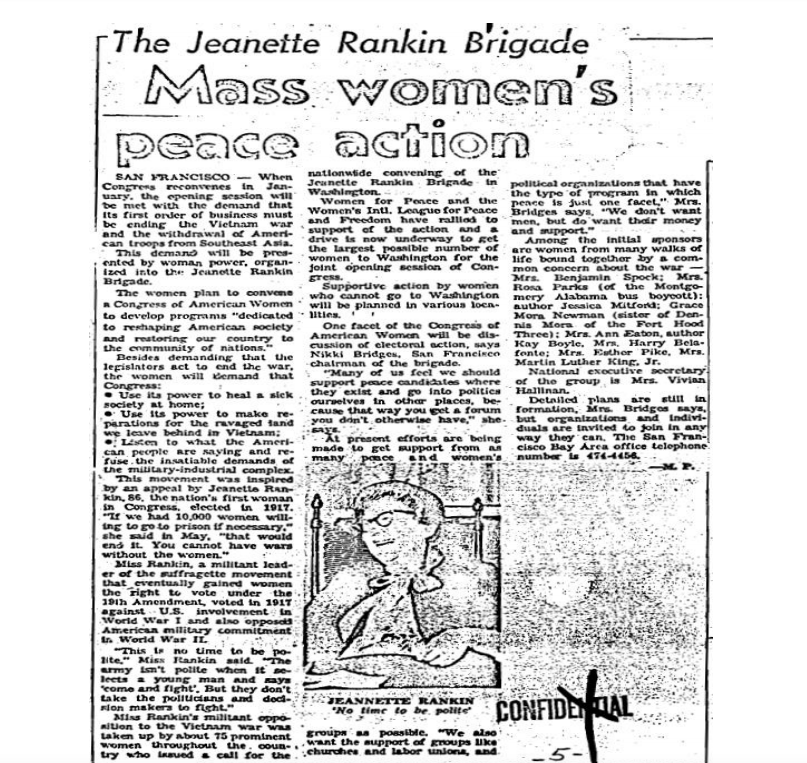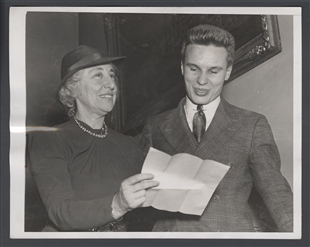Pacifist Work
After Jeannette Rankin's term in Congress ended and she wasn't reelected, she focused her work on fighting for peace, as the 19th Amendment was finally ratified in 1920. From 1929-1939, she worked as a speaker for the National Council for the Prevention of War. As 1940 came around, the brink of U.S. involvement in the Second World War was close. Rankin ran for the House of Representatives again with the ideals of pacifism and was elected as a Montanan Representative. This time in the House, she wasn't the only woman; six other women served alongside her. After Pearl Harbor was bombed on December 7, 1941, another U.S. war involvement vote came to Congress. Jeannette Rankin cast the sole anti-war vote and her vote evoked lots of backlash. For the rest of her term, she wasn't able to do much because of this. When her term ended, she decided not to run for reelection.
“As a woman I can’t go to war, and I refuse to send anyone else.” ~ Jeannette Rankin

Telegram from Wallace Kaisen expressing Montana's disappointment
in her anti-war vote. An example of backlash she faced.
National Women's History Museum

Newspaper coverage of Jeannette Rankin's vote.
National Women's History Museum
The years after her second term in Congress were full of learning the peace principles of Mohandas K. Gandhi. She used many of the tactics she learned from Gandhi's work in a protest march of the Vietnam War in 1968, later called the Jeannette Rankin Brigade. At age 88, Rankin led over 5,000 people in a march against the Vietnam War. Additionally, her congressional status allowed her to present a peace petition to the Speaker of the House, John McCormack of Massachusetts. Unfortunately, Congress did not act on the petition.
“There is no reason why old ladies should be denied the right to go into the Capitol and have policemen on every corner to see that we don’t hurt you.”
~ Jeannette Rankin

Newspaper coverage of the Jeannette Rankin Brigade from the FBI records.
National Women's History Museum

Jeannette Rankin with Frank Littell during her time working with
National Council for the Prevention of War.
History, Art, & Archives: United States House of Representatives
“If we had 10,000 women who were willing to make the sacrifices that these boys had given their lives for, we could stop the war,”
~ Jeannette Rankin